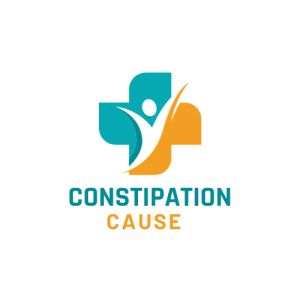Have you ever came across a situation where you are going about your day when suddenly, you feel a twinge of chest pain and find yourself short of breath.
Surprisingly, the culprit might not be where you’d expect—your digestive system could be at the root of the issue.
Constipation, often brushed off as a minor inconvenience, could be causing these unexpected symptoms. This article aims to discuss in detail: ‘can constipation cause chest pain and shortness of breath?’
So, let’s get started!
Can Constipation Cause Chest Pain?
Constipation, a common gastrointestinal issue characterized by infrequent bowel movements or difficulty passing stool, is typically not directly associated with chest pain. However, in some cases, severe or chronic constipation can indirectly contribute to chest discomfort or pain.
One possible mechanism behind this association is related to the increased pressure within the abdomen caused by constipation. When stool accumulates in the colon and rectum, it can lead to distension of the intestines and increased intra-abdominal pressure. This elevated pressure can exert force on nearby structures, including the diaphragm, which separates the abdominal and chest cavities.
As the diaphragm becomes displaced or compressed due to increased abdominal pressure, it can result in referred pain to the chest area. This type of pain may be described as a dull ache or pressure in the chest, rather than the sharp, stabbing pain typically associated with heart-related issues.
It’s important to note that while constipation-induced chest pain may mimic symptoms of cardiac issues, it is usually benign and resolves once the underlying constipation is addressed. However, any chest pain should be evaluated by a healthcare professional to rule out serious conditions such as heart disease or gastrointestinal disorders.
Can Constipation Induce Chest Pain and Impact Breathing?
1. Straining and Pressure:
Constipation often involves prolonged and forceful straining during bowel movements, which can significantly impact the abdominal and chest regions. When individuals strain to pass stool, they increase intra-abdominal pressure, exerting force on surrounding structures including the diaphragm—a key muscle involved in breathing. This increased pressure may lead to compression or displacement of the diaphragm, causing sensations of discomfort or tightness in the chest.
Furthermore, the act of straining can trigger temporary changes in blood flow and oxygenation to the heart muscle, potentially inducing chest pain or discomfort known as angina. The combination of elevated intra-abdominal pressure and altered blood flow patterns during straining can exacerbate any underlying cardiovascular conditions, making individuals more susceptible to experiencing chest pain.
Additionally, the physical exertion associated with straining during bowel movements can lead to increased demand on the respiratory muscles, including the intercostal muscles between the ribs and the accessory muscles of respiration. This increased respiratory effort can further contribute to sensations of chest discomfort or difficulty breathing, especially in individuals with weakened respiratory muscles or pre-existing lung conditions.
2. Nerve Interactions:
The digestive system and the chest region are closely connected through a complex network of nerves known as the enteric nervous system and the vagus nerve. These nerves play a crucial role in regulating gastrointestinal function and transmitting sensory information between the digestive tract and the brain.
In cases of constipation, irritation or distension of the intestines can activate sensory nerves that transmit signals to the brain, potentially leading to referred sensations of discomfort or pain in the chest region. This phenomenon, known as visceral hypersensitivity, occurs when the brain interprets signals from the gut as originating from the chest or other areas of the body.
Moreover, the vagus nerve, which extends from the brainstem to the abdomen, innervates both the digestive system and the heart. Dysfunction or overstimulation of the vagus nerve due to gastrointestinal issues like constipation can result in symptoms such as chest pain, palpitations, or irregular heartbeats, further blurring the lines between gastrointestinal and cardiac symptoms.
The Impact of Constipation on Breathing Patterns:
Constipation, often regarded as a gastrointestinal concern, can surprisingly influence breathing patterns, potentially leading to alterations in respiratory function and discomfort in the chest region.
1. Diaphragmatic Influence:
The diaphragm, a dome-shaped muscle separating the chest and abdominal cavities, plays a critical role in breathing. During inhalation, the diaphragm contracts and moves downward, expanding the chest cavity and allowing air to enter the lungs. Conversely, during exhalation, the diaphragm relaxes and moves upward, aiding in the expulsion of air from the lungs.
Constipation can affect diaphragmatic movements by exerting pressure on the abdominal organs. As stool accumulates in the colon and rectum, it increases intra-abdominal pressure, potentially impeding the normal descent of the diaphragm during inhalation. This interference with diaphragmatic function may result in shallow or restricted breathing patterns, leading to sensations of breathlessness or discomfort in the chest.
Prolonged straining during bowel movements, a common occurrence in individuals with constipation, can further exacerbate the impact on diaphragmatic movement. The increased intra-abdominal pressure generated during straining may restrict the downward movement of the diaphragm, hampering its ability to adequately expand the lungs and facilitate efficient breathing.
2. Increased Abdominal Pressure:
Constipation is often characterized by increased abdominal pressure due to the accumulation of stool in the colon and rectum. This elevated pressure within the abdominal cavity can have implications for respiratory function.
As intra-abdominal pressure rises, it can compress surrounding structures, including the diaphragm and the lungs. This compression may impede the normal expansion of the lungs during inhalation, leading to reduced lung capacity and compromised respiratory efficiency. Consequently, individuals may experience sensations of chest tightness or difficulty breathing, particularly during periods of increased abdominal pressure, such as when straining during bowel movements.
Moreover, the displacement of abdominal organs resulting from chronic constipation can further contribute to respiratory discomfort. Changes in the positioning of organs within the abdominal and thoracic cavities may alter the mechanics of breathing, leading to feelings of pressure or restriction in the chest region.
Recognizing When Constipation Might Cause Chest Pain and Shortness of Breath:
Understanding the situations or conditions in which constipation can manifest as chest pain and shortness of breath is crucial for prompt recognition and appropriate management of these symptoms.
1. Chronic Constipation:
Chronic constipation, characterized by persistent difficulty in passing stool or infrequent bowel movements over an extended period, poses a higher risk for influencing respiratory symptoms. Individuals with chronic constipation often experience prolonged periods of straining during bowel movements, leading to increased intra-abdominal pressure and potential disruption of normal respiratory mechanics.
Over time, the cumulative effects of chronic constipation on diaphragmatic function and respiratory muscle strength may become more pronounced. The persistent elevation in intra-abdominal pressure can impair diaphragmatic descent and lung expansion, resulting in shallow breathing patterns and sensations of chest tightness or discomfort.
Furthermore, individuals with chronic constipation may develop compensatory breathing habits, such as breath-holding or shallow breathing, in response to the discomfort associated with straining. These altered breathing patterns can exacerbate respiratory symptoms and contribute to feelings of breathlessness or difficulty breathing, particularly during episodes of constipation-related discomfort.
2. Other Health Conditions:
The impact of constipation on the chest and breathing may be amplified in individuals with underlying health conditions that affect respiratory function or gastrointestinal motility. For example, individuals with respiratory conditions such as chronic obstructive pulmonary disease (COPD) or asthma may be more susceptible to respiratory symptoms secondary to constipation.
In individuals with COPD, constipation-induced alterations in respiratory mechanics can exacerbate existing breathing difficulties and lead to increased respiratory distress. Similarly, individuals with asthma may experience worsened asthma symptoms in conjunction with constipation-related chest discomfort and shortness of breath.
Moreover, certain neurological conditions, such as Parkinson’s disease or spinal cord injuries, can affect gastrointestinal motility and increase the risk of constipation. In these cases, the combination of impaired bowel function and altered respiratory control mechanisms may contribute to a heightened susceptibility to constipation-related respiratory symptoms. Ever thought about how alignment issues in the hips could factor into these digestive issues?
Is Your Chest Pain Serious?
Experiencing chest pain is a significant symptom that should never be ignored, especially if accompanied by shortness of breath. While chest pain can sometimes be attributed to non-life-threatening causes such as indigestion or muscle strain, it can also signal a serious medical emergency.
If you are experiencing chest pain and shortness of breath, it’s crucial to seek immediate medical attention. Call emergency services or go to the nearest emergency room without delay. Time is of the essence when it comes to chest pain, as prompt medical evaluation can mean the difference between life and death in certain situations.
Chest pain accompanied by shortness of breath can be indicative of various serious conditions, including:
- Heart-related issues: Chest pain can be a symptom of a heart attack, angina, or other cardiac problems. These conditions require urgent medical intervention to prevent complications and potentially save your life.
- Pulmonary issues: Shortness of breath and chest pain can also be associated with pulmonary conditions such as pulmonary embolism, pneumonia, or pneumothorax. These conditions can be life-threatening and require immediate medical treatment.
- Other medical emergencies: In some cases, chest pain and shortness of breath may be caused by other serious medical emergencies such as aortic dissection, esophageal rupture, or tension pneumothorax. Prompt medical evaluation is essential to identify and address the underlying cause of your symptoms.
While rare, severe constipation can lead to complications such as fecal impaction, which can cause symptoms like fever and chills. If you experience these symptoms along with constipation, seek medical attention immediately.
Management and Prevention Strategies:
Constipation can be uncomfortable and disruptive to daily life, but there are several practical strategies and lifestyle changes you can implement to manage constipation effectively and potentially alleviate associated symptoms.
1. Increase Fiber Intake:
Incorporate fiber-rich foods into your diet, such as fruits, vegetables, whole grains, and legumes. Fiber adds bulk to stool and helps promote regular bowel movements. Aim for at least 25-30 grams of fiber per day for optimal digestive health.
2. Stay Hydrated:
Drink plenty of water throughout the day to keep your body hydrated. Adequate hydration helps soften stool and facilitates bowel movements. Aim for at least 8-10 glasses of water daily, or more if you engage in strenuous physical activity or live in a hot climate.
3. Regular Exercise:
Engage in regular physical activity to stimulate bowel motility and promote regularity. Aim for at least 30 minutes of moderate-intensity exercise most days of the week. Activities such as walking, jogging, cycling, or swimming can be beneficial for digestive health.
4. Establish a Routine:
Try to establish a regular schedule for bowel movements by going to the bathroom at the same time each day, preferably after meals. Consistency in bowel habits can help train your body to regulate bowel movements more effectively.
5. Consider Fiber Supplements:
If you’re unable to get enough fiber from your diet alone, consider taking fiber supplements such as psyllium husk or methylcellulose. These supplements can help increase stool bulk and promote regular bowel movements. However, be sure to drink plenty of water when taking fiber supplements to prevent constipation.
6. Limit Processed Foods and Refined Sugars:
Minimize your intake of processed foods, refined sugars, and low-fiber foods, as these can contribute to constipation. Opt for whole, unprocessed foods whenever possible to support digestive health.
7. Manage Stress:
Chronic stress can contribute to digestive issues, including constipation. Practice stress-reducing techniques such as mindfulness meditation, deep breathing exercises, yoga, or tai chi to help alleviate stress and promote relaxation.
8. Avoid Laxative Abuse:
While laxatives can provide short-term relief from constipation, relying on them excessively can lead to dependence and worsen constipation over time. Use laxatives sparingly and under the guidance of a healthcare professional.
Dietary Adjustments:
Making dietary adjustments is key to managing constipation effectively. Focus on incorporating fiber-rich foods into your meals, such as fruits, vegetables, whole grains, and legumes. These foods are rich in insoluble fiber, which adds bulk to stool and helps promote regular bowel movements. Aim to include a variety of fiber sources in your diet to ensure you’re getting a good balance of soluble and insoluble fiber.
Additionally, staying hydrated is crucial for maintaining healthy digestion. Be sure to drink plenty of water throughout the day to help soften stool and facilitate bowel movements. Aim for at least 8-10 glasses of water daily, or more if you engage in strenuous physical activity or live in a hot climate.
Physical Activity:
Regular physical activity plays a vital role in maintaining both digestive and respiratory health. Exercise stimulates bowel motility and promotes regularity by enhancing the contractions of the intestinal muscles, which helps move food and waste through the digestive tract more efficiently.
Engaging in aerobic exercises such as walking, jogging, cycling, or swimming can be particularly beneficial for promoting digestive health. These activities increase heart rate and breathing rate, which in turn stimulates blood flow to the digestive organs and enhances overall gastrointestinal function.
Moreover, physical activity can also improve respiratory health by strengthening respiratory muscles and increasing lung capacity. Regular exercise helps maintain optimal lung function and may reduce the risk of respiratory conditions such as asthma, chronic obstructive pulmonary disease (COPD), and
Yoga and Breathing Exercises for Digestive and Respiratory Health
- Deep Breathing (Pranayama): Inhale deeply through your nose, expanding your belly, then exhale slowly through your mouth. Repeat to enhance lung capacity and relaxation.
- Apanasana (Knee-to-Chest Pose): Lie on your back, hug one knee toward your chest, hold briefly, and then switch sides. Promotes digestion and relieves constipation.
- Seated Twists: Sit with legs extended, cross one knee over the other, twist torso to opposite side, hold briefly, then switch. Massages abdominal organs and aids digestion.
- Bhujangasana (Cobra Pose): Lie on stomach, hands under shoulders, lift chest off floor while inhaling, then lower down while exhaling. Strengthens back muscles and stimulates digestion.
Conclusion:
In conclusion, constipation can indeed lead to chest discomfort and even respiratory symptoms in some cases, particularly when associated with prolonged straining or increased abdominal pressure.
It’s crucial to recognize the potential impact of constipation on overall health, including the digestive and respiratory systems. If you experience chest pain, shortness of breath, or other concerning symptoms, seek immediate medical attention to rule out serious conditions such as heart problems or pulmonary issues.
To maintain digestive and respiratory health, focus on incorporating fiber-rich foods, staying hydrated, engaging in regular physical activity, and practicing stress management techniques. By taking proactive steps to address constipation and prioritize your well-being, you can support optimal digestive and respiratory function and improve your overall quality of life.
Frequently Asked Questions:
Can constipation cause tightness in chest?
Yes, constipation can lead to increased intra-abdominal pressure, potentially causing chest tightness.
Can constipation affect your heart?
Indirectly, severe constipation can lead to increased intra-abdominal pressure, affecting blood flow and potentially triggering cardiac symptoms.
Can digestive issues cause chest pain and shortness of breath?
Yes, gastrointestinal issues like constipation can sometimes manifest as chest pain and shortness of breath.
What are the danger signs of constipation?
Danger signs include severe abdominal pain, vomiting, rectal bleeding, and inability to pass gas or stool.
Are there individuals more prone to experiencing respiratory symptoms due to constipation?
Yes, individuals with pre-existing respiratory conditions or compromised lung function may be more susceptible to respiratory symptoms related to constipation.
Can constipation cause lasting damage to the respiratory system?
Chronic constipation may contribute to respiratory symptoms over time, but lasting damage to the respiratory system is unlikely without underlying respiratory conditions.









Leave feedback about this